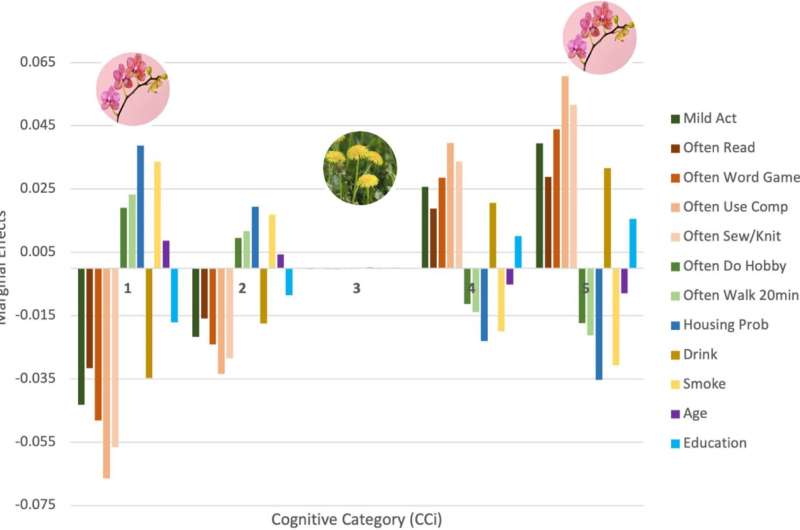Healthy aging requires an understanding of personality types

New research shows that older adults may be better supported as they age when their personalities are considered—for example, are they more like orchids or dandelions?
Researchers from Simon Fraser University's Circle Innovation examined the potential effects of lifestyle activities on the cognitive health of more than 3,500 adults aged 60+, and found that personality–using psychology's orchid-dandelion metaphor—can be a factor in how well supportive programs work.
Their results, published this month in the journal Frontiers in Aging Neuroscience, make a case for policy-makers to consider designing programs tailored to personality types rather than a one-size-fits-all approach.
"These discoveries offer new possibilities to support aging adults and provide substantial evidence for new social prescribing programs," says Circle Innovation CEO and scientific director Sylvain Moreno. "Understanding how personality differences affect an aging population can help decision-makers provide older adults with solutions that fit their individual needs."
People who may be considered "orchid adults" thrive best under ideal circumstances, since they are more sensitive and biologically reactive, while "dandelion adults" are thought to be resilient and can easily adapt to any environment.
That means orchid individuals could require more nurturing solutions, researchers say. "These older adults are more fragile, like the delicate flower they represent, and hence prone to overreact to ongoing health and housing problems, disturbing news about the economy or global pandemics," says SFU Ph.D. student and study researcher Emma Rodrigues. "On the other hand, dandelion retirees are relatively less environment-sensitive and also more resilient to deterioration in poor environmental conditions."
"The lesson here is that we should stop pigeonholing aging adults into one group of our population. These results demonstrate how aging trajectories can differ depending on whether a person is influenced by the environment."
According to researchers, understanding how modifiable lifestyle factors may maintain or promote cognitive health can lead to a healthier aging population.
More information: Emma A. Rodrigues et al, Does cognitive aging follow an orchid and dandelion phenomenon?, Frontiers in Aging Neuroscience (2022). DOI: 10.3389/fnagi.2022.986262. www.frontiersin.org/articles/1 … agi.2022.986262/full

















